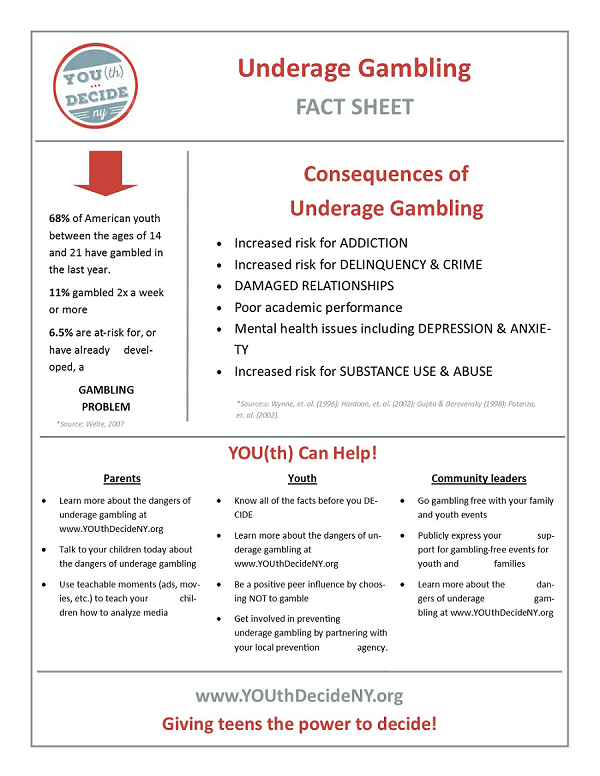Fact Gambling is an essential concept that underscores the importance of informed decision-making in gaming activities. With the rise of online casinos and betting platforms, understanding the dynamics of gambling is more crucial than ever for ensuring responsible gaming. Knowledge of gambling regulations is vital in educating individuals about the risks of gambling addiction and the signs of problem gambling. By promoting gambling awareness, we can effectively address the challenges faced by many who may struggle with their betting habits. This blog post dives into key insights surrounding fact gambling, emphasizing the need for responsible practices and community engagement in mitigation efforts.
When exploring the world of betting and wagering, one might encounter various terms such as gaming behavior, betting awareness, and responsible betting. These concepts collectively highlight the need for a responsible approach to gambling that not only entertains but also safeguards individuals from potential pitfalls. As more people engage in these activities, understanding factors like gambling addiction, the importance of adhering to gambling regulations, and recognizing problem gambling becomes paramount. This narrative delves deeper into the intricacies of responsible gambling, illustrating the delicate balance between enjoyment and caution in this popular pastime.
The Importance of Responsible Gambling Practices
Responsible gambling is paramount in today’s gaming landscape. As more individuals turn to various gambling formats, it’s essential to foster a culture that emphasizes safety and awareness. By promoting responsible gaming practices, the industry can help mitigate the risks associated with gambling addiction. This commitment not only benefits players but also enhances the overall reputation of gambling establishments. Recognizing the signs of problem gambling is a critical first step; individuals must remain vigilant about their behaviors and those of others. This awareness is crucial in preventing addiction and preserving the fun that gambling can entail.
To support responsible gambling, various organizations implement educational campaigns aimed at informing individuals about the risks. These initiatives often include workshops, informational brochures, and online resources that teach best practices for gambling. In addition, collaboration between gaming operators and mental health professionals can lead to better support structures for those exhibiting signs of gambling problems. By fostering an environment filled with resources and support networks, we can ensure that gambling remains an enjoyable and safe leisure activity, allowing individuals to engage responsibly.
Fact Gambling: Understanding the Risks and Regulations
Fact gambling involves being fully informed of both the enjoyment and risks associated with gaming activities. It promotes a balanced approach where players understand the odds and the financial implications of their bets. This understanding is crucial, especially in light of the rising number of gambling addiction cases that have surfaced in recent years. Gambling regulations play an essential role in shaping how operators conduct their businesses and protect the interests of players. These regulations are designed to ensure transparency, fair play, and the proper handling of player funds, thereby fostering a safer gaming environment.
The push for stronger gambling regulations is often met with resistance from industry operators, who may fear it could impede their business growth. However, enhancing consumer protection should take precedence over profit margins. Regulations that promote responsible gambling not only shield the vulnerable but also encourage healthier gaming habits among all participants. As seen in states like New Jersey, proactive measures can effectively address the challenges of gambling addiction, ensuring that players can enjoy the thrill of betting without falling into harmful patterns. This balance between industry interests and consumer safety is essential in crafting an accountable gambling framework.
Frequently Asked Questions
What measures are being taken to promote responsible gaming in the face of problem gambling?
To combat problem gambling, various states have implemented proactive measures focused on responsible gaming. Initiatives like New Jersey’s Responsible Gaming Task Force emphasize educational campaigns, increased funding for treatment, and community engagement. These efforts are designed to raise awareness about the risks of gambling addiction and foster a culture of responsible gaming.
How do gambling regulations impact problem gambling and ensure responsible gaming practices?
Gambling regulations play a crucial role in mitigating the risks associated with problem gambling. They are designed to protect consumers from gambling addiction and promote responsible gaming. By enforcing consumer protection legislations, governments can limit the adverse effects of gambling while balancing industry growth. These regulations help create safer environments where individuals can engage in gambling responsibly.
| Key Insights | Details |
|---|---|
| Fact Gambling Definition | Informed approach to gambling focusing on risks and wise betting. |
| Rise of Problem Gambling | 1-3% of the population affected by gambling issues, impacting individuals and communities. |
| Lobbying Against Regulation | Operators resist consumer protection laws that could limit gambling addiction and protect consumers. |
| Call for Regulation | Essential for mitigating gambling addiction effects and ensuring consumer safety. |
| New Jersey’s Initiative | Focus on education, funding treatment, and community engagement to combat gambling issues. |
| Partnerships in Responsible Gaming | Collaboration with organizations like EDGE Boost to enhance responsible gambling support. |
| Importance of Education | Education on recognizing gambling issues promotes healthy habits and community support. |
Summary
Fact Gambling is a significant topic in today’s landscape of entertainment, where the balance between enjoying games and maintaining responsibility is often tested. In a world where gambling is increasingly common, understanding the insights into responsible gaming is essential. The growing prevalence of gambling issues, primarily due to irresponsible practices, poses a challenge to consumer safety. It is crucial that individuals are educated on the risks associated with gambling and the signs of problematic behavior. Initiatives by states like New Jersey and collaborations between organizations such as EDGE Boost and Birches Health showcase a proactive approach to promoting responsible gambling. These efforts highlight the importance of creating a safe environment for all participants while reducing the risk of addiction. Ultimately, by prioritizing education and community support, we can foster a gambling culture that is not just entertaining, but safe and enjoyable for everyone involved.
